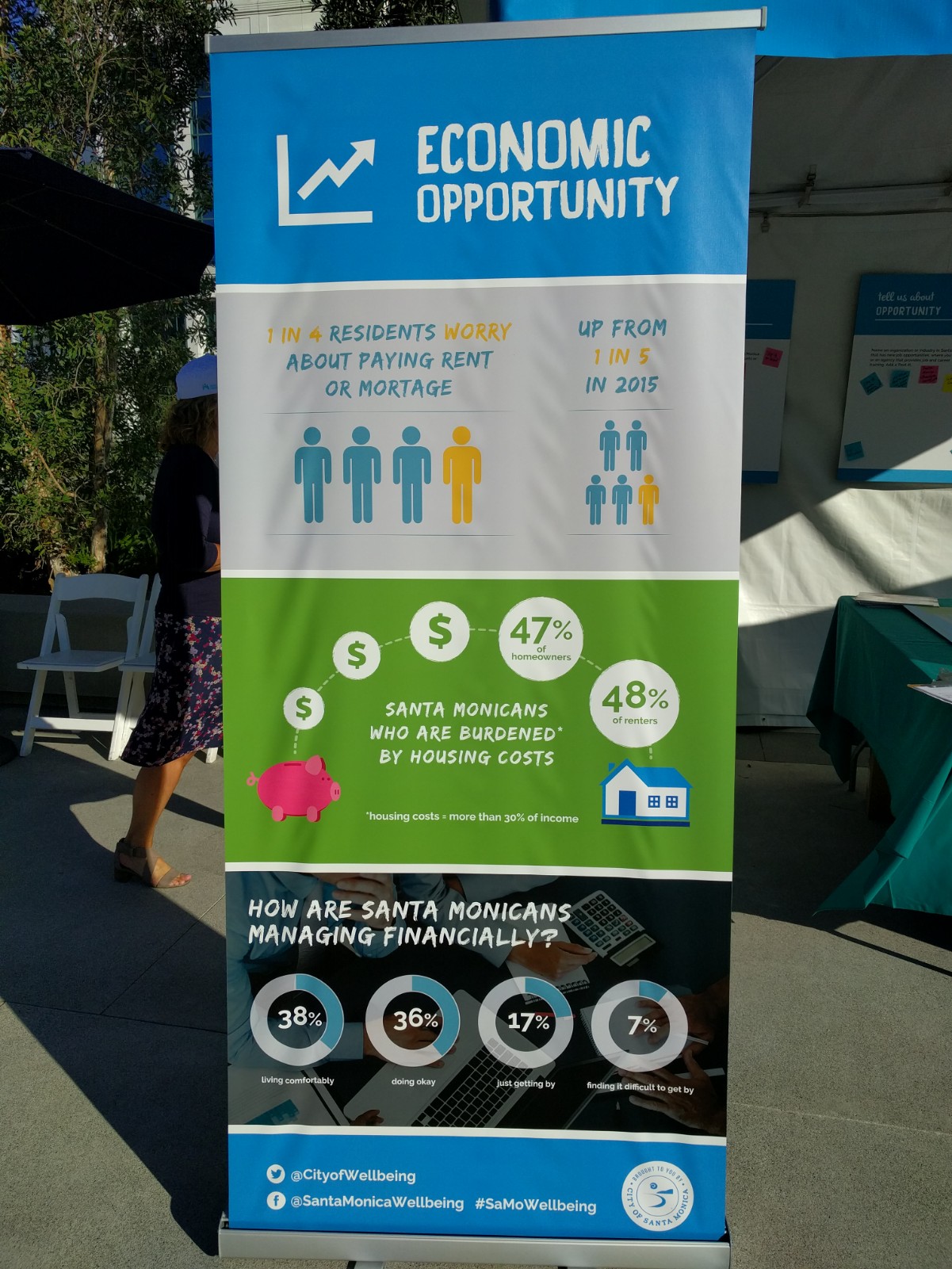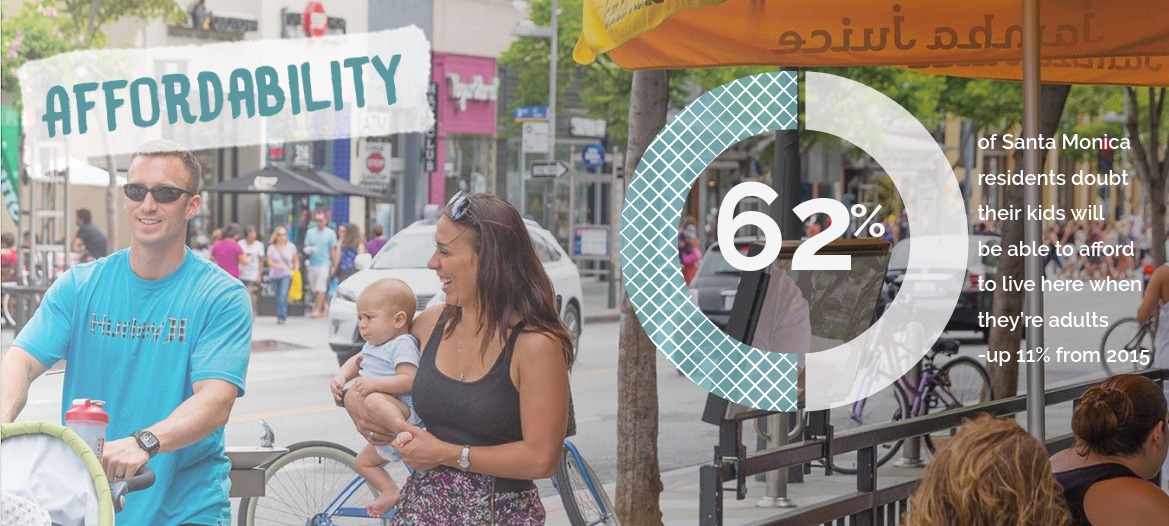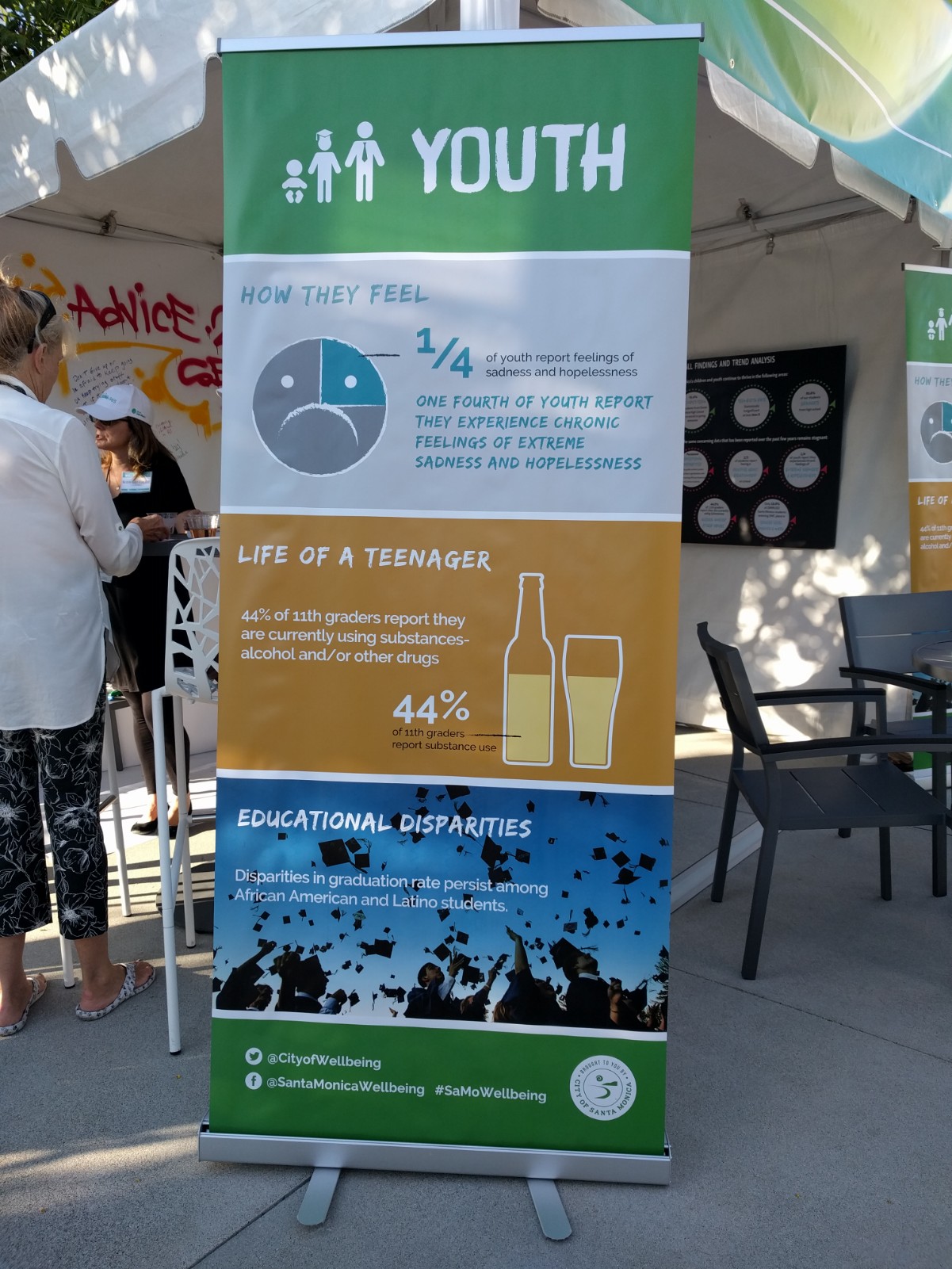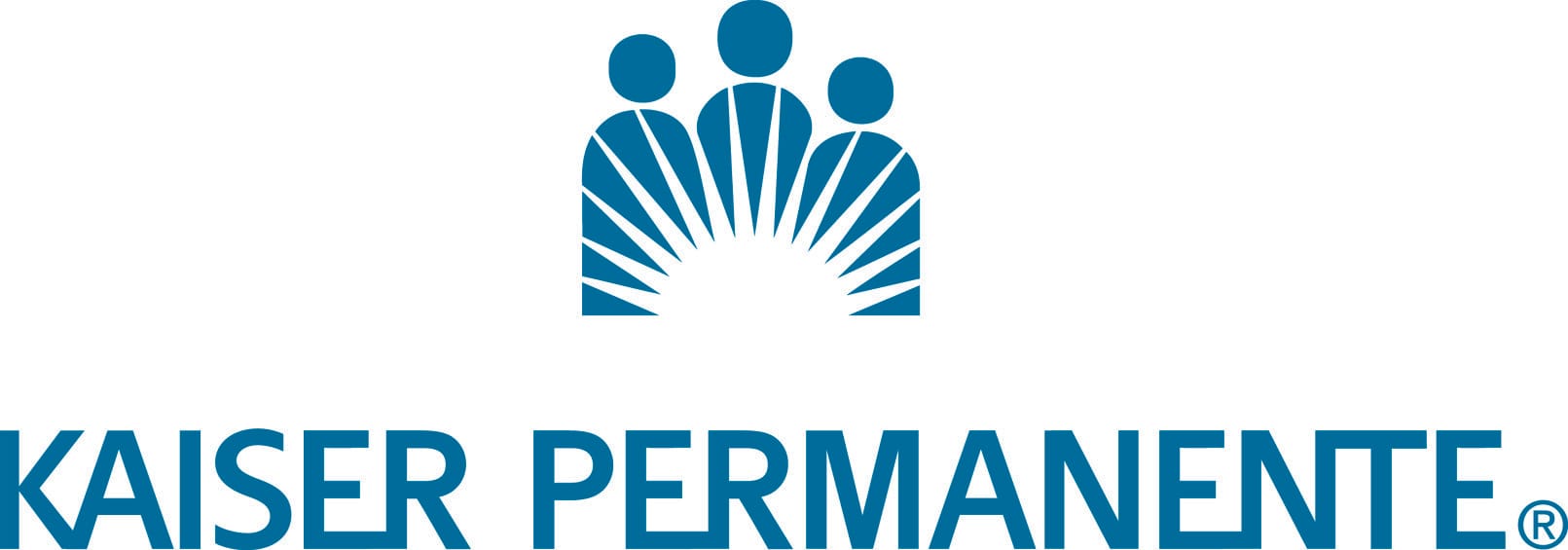Santa Monica, in partnership with Kaiser Permanente, launched the city’s 2017 Wellbeing Index findings this week, revealing a community excelling by some measures, but with significant disparities and a severe housing affordability problem.

For the past four years, through the Wellbeing Index, the city has aimed to define and measure different facets of Santa Monicans’ lives, like their physical health, eating habits, mental health, economic security, in order to better inform the city’s policy decisions.
This year, Santa Monica partnered with Kaiser Permanente to address some of the issues revealed in the Index’s results through the “Wellbeing 365: Stress Less & Thrive” initiative, which was unveiled at a special event at the Watergarden office park Wednesday.
Through the partnership, Kaiser and the city produced a series of short videos, in English and in Spanish, that offer tips and advice from many of Kaiser Permanente’s medical professionals on how Santa Monicans can improve wellbeing in the different parts of their lives.
“We sought to address some of the challenges Santa Monicans face by leveraging our medical expertise and our commitment to improving the wellbeing of the communities we serve,” said Yesenia Monsour, director of Public Affairs & Brand Communications at Kaiser Permanente West Los Angeles Medical Center. “We hope these videos serve as an inspiration for other cities and organizations to find meaningful ways to partner to improve people’s lives.”

The videos range from offering tips on reducing stress, healthy eating and exercise habits creating community, to exploring the various resources available in the city to help improve economic opportunities to outlining programs available to help local youth, just to name a few of the topics covered.
And while Santa Monicans are doing well by some measures — there have been improvements since 2015 when the Index first released findings in people’s sense that they can rely on their neighbors, for example — there are some concerning findings.
College readiness rates in the school district vary significantly along racial lines with black students clearly being left behind. According to the 2017 Wellbeing Index’s executive summary, only 52 percent of black students are college ready, compared to 85 percent of white students and 72 percent of Latino students.
And then there’s the issue of housing. Sixty two percent of residents worry that their children won’t be able to afford to live in Santa Monica, an increase of 11 percent since 2015. And it’s easy to see why. According to the executive summary, nearly half of Santa Monica residents — homeowners and renters alike — are significantly burdened by the cost of housing, meaning they pay more than 30 percent of their income on mortgage or rent.
The high cost of housing is a direct result of the city’s long-standing slow-growth policies which the city’s leadership seems largely unwilling to change.

Still, there are other aspects of people’s wellbeing that are more readily addressed and ultimately, the Wellbeing Index is about understanding how local government can give residents the necessary tools to improve their lives.
For example, to help Santa Monica residents build a sense of community, the city is bringing its process for applying for a block party permit up to date and putting it online. And through the Wellbeing 365: Stress Less & Thrive video series, residents can learn from medical professionals about resources and strategies to improve their wellbeing.
 “The science says, somewhere between 40 and 60 percent of how you’re doing can be changed,” Julie Rusk told Santa Monica Next in an interview in 2014. At the time, Rusk was the city’s assistant director of Community and Cultural Services. At the beginning of this year, she became the city’s chief civic wellbeing officer. Rusk has been spearheading the Wellbeing Project since it started after the city won a $1 million prize from Bloomberg Philanthropies in 2013 for the proposal.
“The science says, somewhere between 40 and 60 percent of how you’re doing can be changed,” Julie Rusk told Santa Monica Next in an interview in 2014. At the time, Rusk was the city’s assistant director of Community and Cultural Services. At the beginning of this year, she became the city’s chief civic wellbeing officer. Rusk has been spearheading the Wellbeing Project since it started after the city won a $1 million prize from Bloomberg Philanthropies in 2013 for the proposal.
“There are things about all of us that are personality, that are temperament. Some are optimistic, some are pessimistic. Those are fixed,” she said in 2014. “Part of [the Wellbeing Project] is trying to understand what are the things that are mutable so that people can do better.”
Disclosure: Kaiser Permanente contributed to Santa Monica Next’s coverage of wellbeing issues in Santa Monica. Kaiser Permanente does not have editorial control over Next’s coverage of this topic or any other topic.

